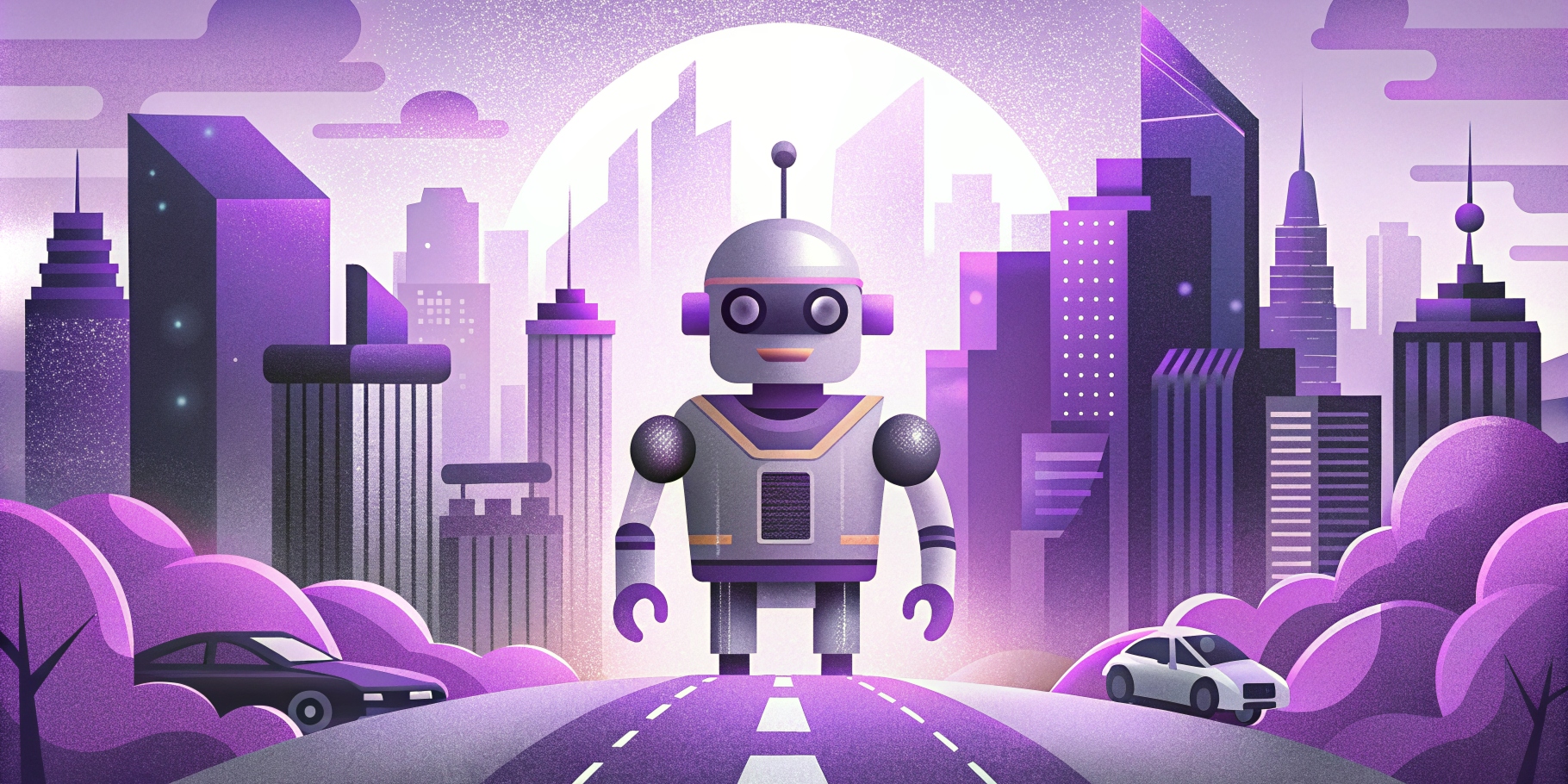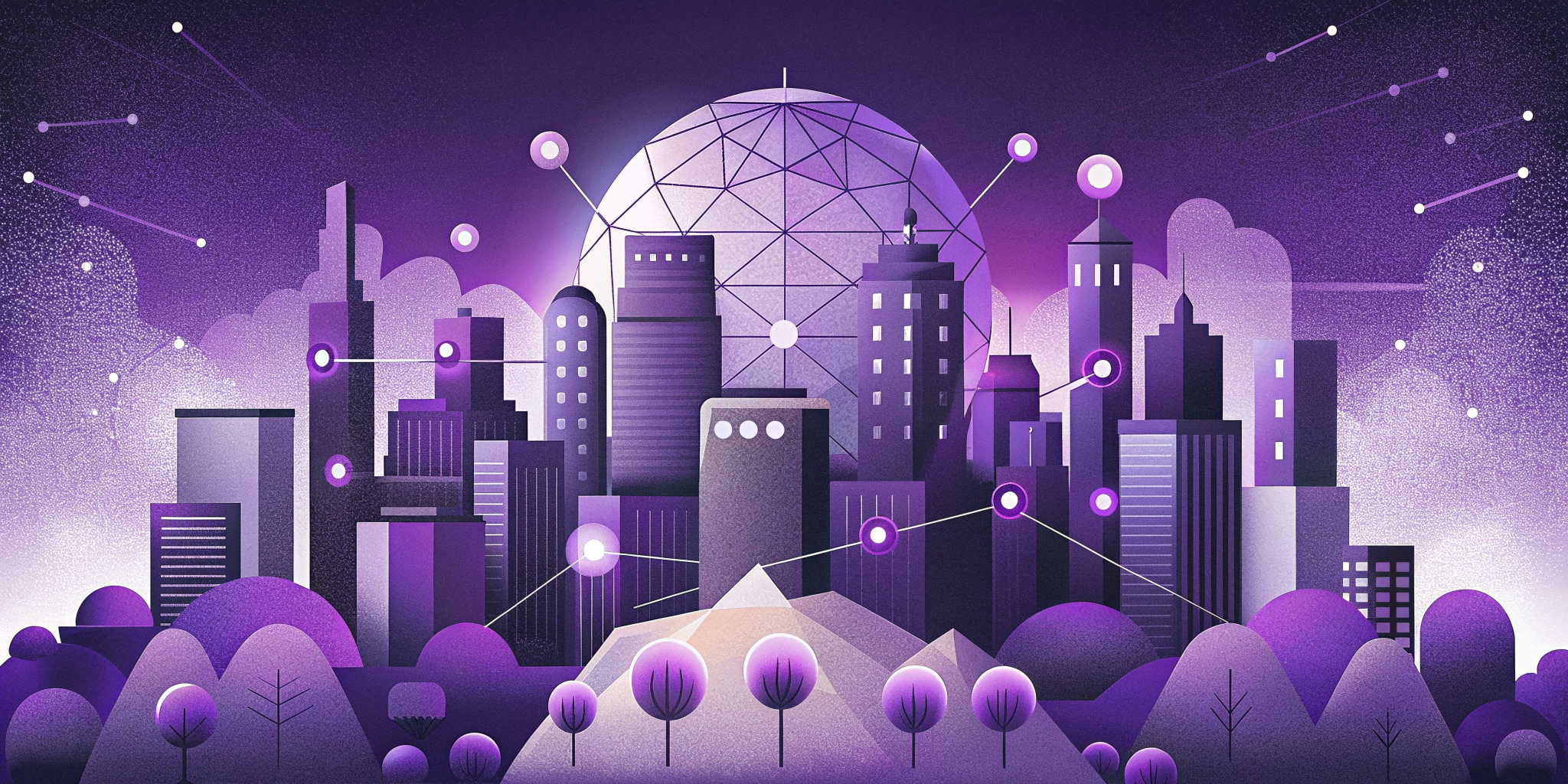Table of Contents
- AI and the Future of Smart Cities: Navigating Challenges and Seizing Opportunities
- The AI Impact: Accelerating Urban efficiency through mobility and energy advancements
- Smart Cities, Safer Communities: Leveraging AI for Enhanced Urban Safety and Connections
- AI for Smart cities applications: some virtuous examples around the world
- AI for a brighter and more sustainable future for urban communities
Imagine cities where energy, water, and waste are managed with utmost efficiency, where pollution is minimal, traffic congestion is a thing of the past, and everything is on a human scale. This vision of a smart city powered by Artificial Intelligence is no longer a distant dream but a rapidly evolving reality. AI has the potential to transform urban landscapes into spaces that are not only efficient and sustainable but also human-centric, ensuring a high quality of life for all citizens. In this article we explore the various ways AI is being integrated into urban ecosystems, making cities more livable, inclusive, and responsive to the needs of their inhabitants.
AI and the Future of Smart Cities: Navigating Challenges and Seizing Opportunities
According to the European Commission, Artificial Intelligence is revolutionizing urban landscapes by empowering smart city solutions, leading to enhanced energy, water, and waste management efficiency, and reduced pollution, noise, and traffic congestion. By 2025, AI is projected to power over 30% of smart city applications, with urban mobility solutions significantly contributing to urban resilience, sustainability, social welfare, and overall vitality. Transcending the traditional role of generating data and insights on city complexities, AI propels cities into a new era of data-driven decision-making.
However, local authorities encounter significant challenges that hinder digital transformation from technological, social, and regulatory perspectives. These obstacles include the availability and reliability of technology and data, dependence on third-party private entities, and skill shortages. Additionally, ethical challenges surrounding the unbiased use of AI and difficulties in regulating interdependent infrastructures and data further complicate the landscape. To overcome these hurdles, companies and public administrations must collaborate, leveraging AI as a tool to shape the future of cities.
The AI Impact: Accelerating Urban efficiency through mobility and energy advancements
Ai invests and helps in different city life areas, contributing to efficiency increasing service quality, and enhancing sustainability.

Urban mobility through AI has various applications such as self-service electric cars, short-distance carpooling, smart parking management, and Mobility as a Service (MaaS). These AI-driven solutions offer social, economic, and ecological benefits, including reduced traffic, lower environmental impact, and increased awareness of sustainable practices. With 38% of people willing to give up their cars for a similar AI-based service, there are vast business opportunities in the mobility sector different companies like Easymile are capitalizing on this trend by offering AI-powered mobility services.
Energy optimization includes smart water management, where AI can address challenges like leakage detection, predictive maintenance, and water quality improvement, contributing to water sustainability in cities with significant leakage issues. With smart urban lighting, businesses can innovate by leveraging AI for remote monitoring, control, and data analysis, enhancing city infrastructure and services. Smart waste management is another area where AI-driven solutions can improve waste collection, processing, and recycling efficiency while reducing environmental impact. Lastly, the urban farming sector provides opportunities for businesses to develop AI-driven automation solutions for crop monitoring and care in vertical farming setups.
Smart Cities, Safer Communities: Leveraging AI for Enhanced Urban Safety and Connections
AI applications are transforming smart cities by enhancing safety, security, and citizen engagement, improving quality of life and sustainable urban environments. In the realm of safety, AI-driven solutions enable smart policing, personalized healthcare, noise and nuisance management, and better cyber security, as well as disaster prevention and management. Urban AI involves artifacts that gather and interpret information from complex city environments, making rational decisions even when data is incomplete.
By supporting real-time, data-driven decision-making processes, AI creates safer urban spaces through innovative applications like smart surveillance systems, predictive policing algorithms, and personalized healthcare services. Furthermore, AI solutions for disaster prevention and management leverage real-time data analysis and predictive modeling to bolster emergency response capabilities in cities. Business opportunities also emerge in developing AI applications that enhance cyber security measures, safeguarding critical infrastructure, public services, and citizens’ data from potential threats.

In addition to safety enhancements, AI empowers resilient and engaged citizens in smart cities through initiatives like Citizen Energy Communities (CEC). These initiatives involve citizens in sustainable and reliable energy systems, amplifying local enthusiasm and resources toward energy sustainability efforts. As modern energy systems become more decentralized and diverse, using AI and open data becomes essential for CECs to deploy and operate local energy systems effectively.
AI assists in asset management, community platform building, and developing alternative pricing and business models for local energy exchange, fostering citizen involvement in sustainable energy initiatives. In this way, AI applications contribute to a more engaged, sustainable, and secure urban future.
AI for Smart cities applications: some virtuous examples around the world
The integration of AI in smart cities has led to numerous innovative collaborations between public and private organizations worldwide, resulting in enhanced urban living and business opportunities.
In Pittsburgh, the City collaborated with Rapid Flow Technologies to develop SURTRAC, an automated traffic optimization software that uses AI to reduce travel times, traffic stops, and wait times.
The Infocomm Development Authority and Microsoft, in Singapore, created “Ask Jamie,” a conversational chatbot that makes online public services more accessible and engaging.
BlueDot , in Canada, uses machine learning and natural language processing to track and recognize the spread of infectious diseases faster than traditional methods.
In India, AI and analytics were used for crowd management, predicting crowd behavior, and preventing stampedes.
The successful implementation of AI in smart cities is often the result of collaborative efforts between private and public organizations. Partnerships with experienced AI consulting companies like Neodata drive technological advancements, create business opportunities, and improve the quality of life for urban residents.
AI for a brighter and more sustainable future for urban communities
In conclusion, the transformative power of AI is reshaping the urban landscape, making smart cities more efficient, sustainable, and human-centric. By addressing challenges in mobility, energy, safety, and citizen engagement, AI-driven solutions are enhancing citizens’ quality of life while creating new business opportunities. The collaboration between private and public organizations is crucial for navigating challenges and seizing opportunities to develop and implement AI technology.
Partner with Neodata, a leading AI and big data technology company, to harness the power of AI and create a more sustainable, connected future for our cities. Embracing AI in smart cities is no longer a question of “if” but “when,” by working together, we can create a brighter, more sustainable future for urban communities.
AI Evangelist and Marketing specialist for Neodata
-
Diego Arnonehttps://neodatagroup.ai/author/diego/
-
Diego Arnonehttps://neodatagroup.ai/author/diego/
-
Diego Arnonehttps://neodatagroup.ai/author/diego/
-
Diego Arnonehttps://neodatagroup.ai/author/diego/
